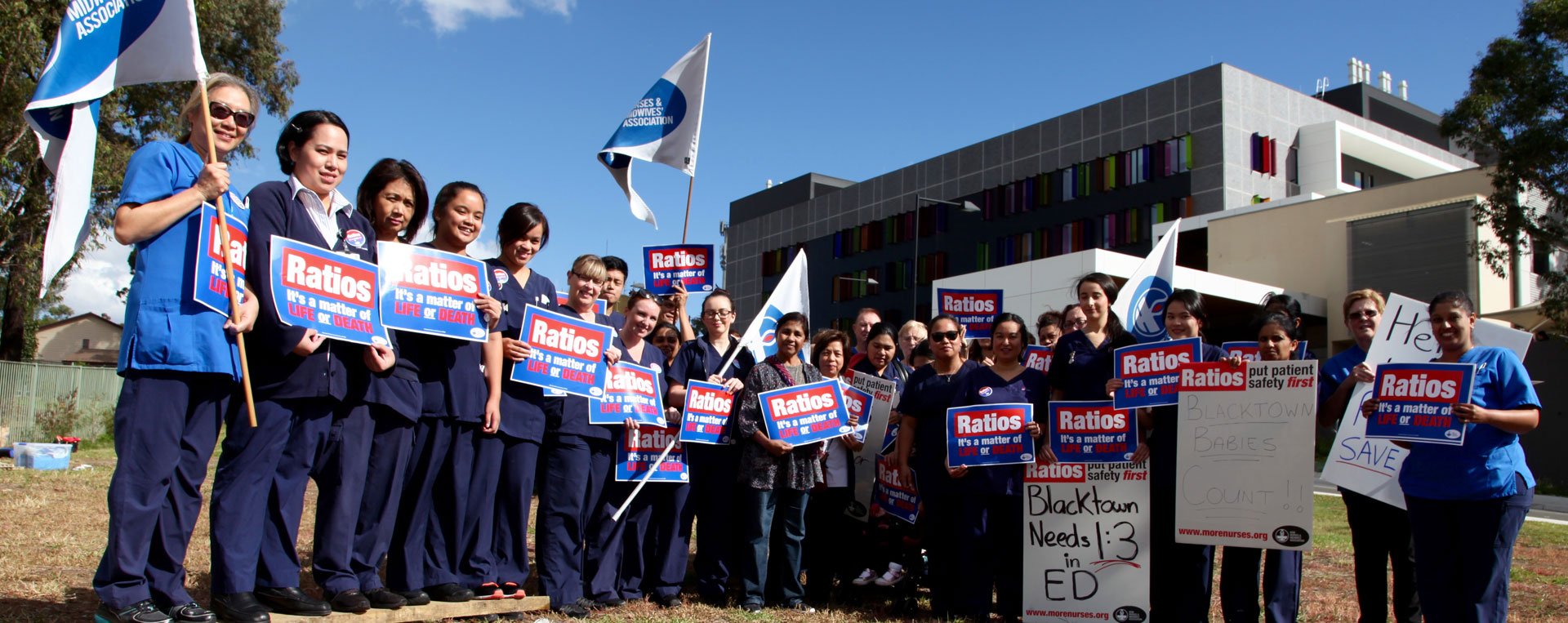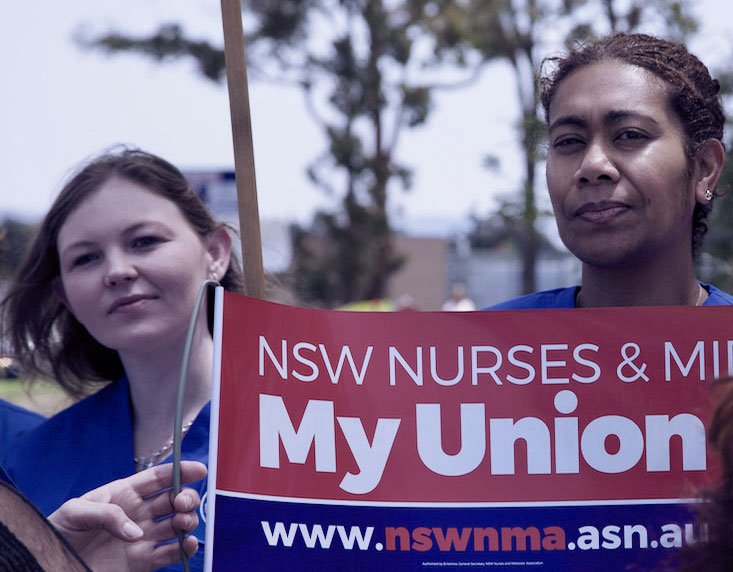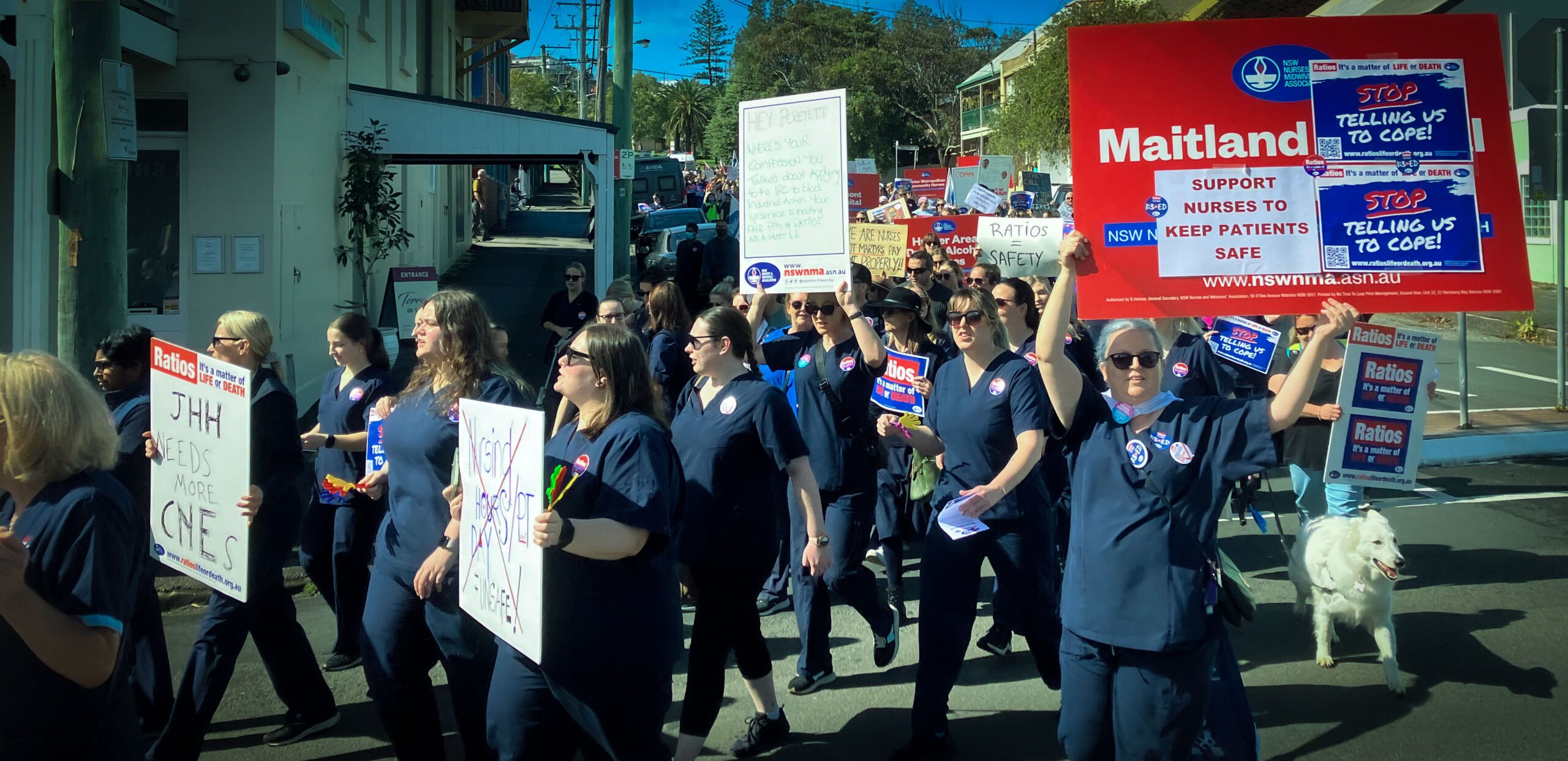The NSW Nurses & Midwives Association (NSWNMA) has slammed renewed calls from sections of the Liberal Party for an increased GST rate as inequitable and a typical conservative approach to public financial management.
The NSWNMA also said ACT Labor leader, Katy Gallagher, should not let herself be sucked into this renewed conservative attack on low and middle income earners.
NSWNMA assistant secretary, Judith Kiejda, said Australia should introduce a Financial Transactions Tax (FTT) before it considers any more tax or service-fee hikes for ordinary people and families. She said that is a better option than again hitting families whenever they go to the shops.
The NSWNMA has been campaigning since November 2011 for Australia to introduce a FTT, with the money raised used on much-needed spending increases in programs such as health and aged care.
In summary, a FTT is a relatively small tax on institutional trades of currencies, stocks, bonds, derivatives and interest rate securities, which could raise billions of dollars annually. Professor of International Finance Law at the University of New South Wales, Ross Buckley, estimates that a 0.05 percent financial transactions tax collected on Australian ‘over-the-counter’ and exchange-traded market transactions between 2005-06 and 2008-09 would have raised 48 billion Australian dollars – an average of $16 billion each year (Oxfam Aust submission to Tax Forum, Oct 2011).
Ms Kiejda said WA premier, Colin Barnett, is the latest Liberal premier to call for a rise in the GST rate and he joins NSW premier, Barry O’Farrell, who made a similar call in May this year.
“Attempts by these Liberal politicians to increase the tax take from ordinary people, while they lack a willingness to look at big-business revenues and activity that should face higher taxation, are unfair and regressive, especially for low and middle income earners like nurses and midwives. It is worth noting that these premiers are supported by the usual big business suspects, such as the Business Council of Australia.
“The fact is, in recent years the tax burden has increasingly fallen on families and pensioners, while corporate and financial taxes have been reduced in the name of supposed efficiency and job creation. The classic case in Australia was, in fact, the original introduction of the GST 10 years ago. A 10 percent transaction tax was imposed on the purchase of most everyday goods and services, by ordinary consumers, and the funds were used, in part in July 2001, to abolish stamp duty on listed share and other marketable securities transactions.
“Ordinary home owners still have to pay quite large amounts of stamp duty on real estate transactions. Yet stamp duty on non-listed shares and other marketable securities is being phased out around Australia.
“And what is Barry O’Farrell and Colin Barnett’s solution to this imbalance, which has cost governments a lot of revenue? Put a bigger impost on ordinary people whenever they purchase a good or service.
“Well, the NSWNMA believes it is time to restore the balance. To some extent the process has started in Australia, with a new tax on mining-company profits and major carbon polluters being forced to pay for their emissions.
“However, we again have state premiers like Colin Barnett and Barry O’Farrell trying to swing things back the other way, through this type of consumer taxation, reductions to workers compensation payments and laws that severely restrict wage bargaining in key public service areas such as health. We also have the new Abbott Government saying it will abolish the resource rent tax and carbon pollution pricing.
“It is time for ordinary people, and those who represent them such as their unions, to fight back and that is what the NSWNMA is doing.
“Many countries around the world are now committed to the FTT’s introduction. This is especially true in Europe, where some countries now see their public services being undermined because of the ongoing fallout from the Global Financial Crisis – a crisis created by speculative practices employed by banks and other financial institutions.
“The NSWNMA believes it’s time Australia also got on board. It is a much better and fairer option than increasing the GST rate and extending its application to essential everyday items like food. We put this to the Gillard-Rudd Governments and we are now putting it to the Abbott Government.
“If governments can tax transactions between a pensioner and their plumber at 10 percent or more, then they can tax financial transactions at 0.05 percent or whatever the final agreed figure is. If governments can tax ordinary families buying homes, then they can and should tax international financial transactions.
“Big business will no doubt employ the usual rhetoric about such taxes costing jobs. The reality is the big jobs growth areas are public services such as health, community services and education. The high wealth, high turnover, low employing sectors need to pay their way, so we can better fund those high employing, essential service sectors,” Ms Kiejda said.








